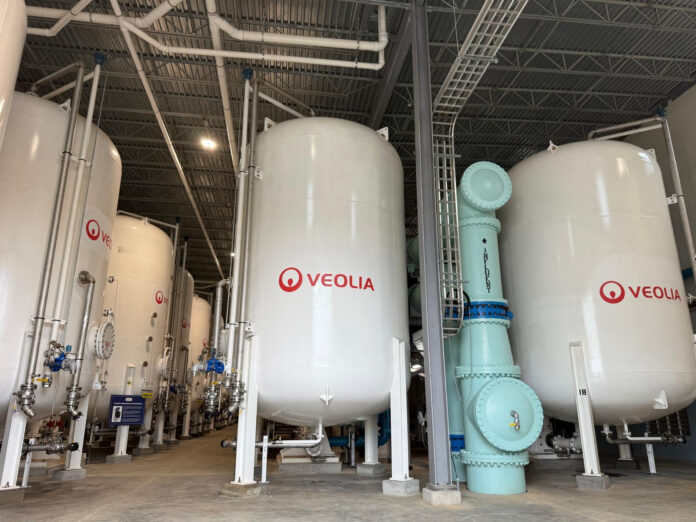Wilmington, DE– Veolia has officially opened one of the largest PFAS treatment facilities in the United States, marking a major step in ensuring safe drinking water for more than 100,000 residents in Delaware. The Stanton Water Treatment Plant, located in Wilmington, is now the largest facility of its kind in the Northeast and among the most advanced nationwide.
The $35 million plant is designed to remove regulated PFAS (per- and polyfluoroalkyl substances) from up to 30 million gallons of water daily, fully complying with new U.S. Environmental Protection Agency standards. PFAS are toxic, long-lasting chemicals linked to health risks such as cancer and developmental issues. The Stanton plant draws from two nearby rivers and uses 42 massive vessels filled with granular activated carbon to capture the contaminants.
“PFAS contamination poses a serious threat to public health, and addressing it at the source is essential,” said Delaware Governor Matt Meyer at the ribbon-cutting ceremony. “This facility plays a vital role in that effort and reflects our commitment to clean, safe water for all Delawareans.”
The plant also includes an in-house lab for testing filtration media and exploring new treatment technologies, offering flexibility and potential cost savings as water standards evolve. Veolia began designing the system in early 2022, ahead of anticipated federal regulations, completing construction in just three years.
The Stanton facility is part of Veolia’s broader BeyondPFAS initiative, through which the company plans to establish more than 100 PFAS treatment sites across the U.S., serving nearly 2 million people. The Delaware plant is the latest addition to Veolia’s 33 operational PFAS systems in the country.
Estelle Brachlianoff, CEO of Veolia, emphasized the plant’s significance as a global model: “This generational investment in water safety highlights Veolia’s commitment to tackling micropollutants and protecting communities. The Stanton facility represents a major advance in public health and environmental resilience.”
Karine Rougé, CEO of Municipal Water for Veolia in North America, praised the speed and quality of the project’s execution: “The team’s work sets a global benchmark for future PFAS treatment projects, and we’re proud that so many will benefit from this achievement.”
With the new Stanton facility online, Delaware becomes a national leader in addressing the growing threat of PFAS contamination through proactive, large-scale infrastructure.


